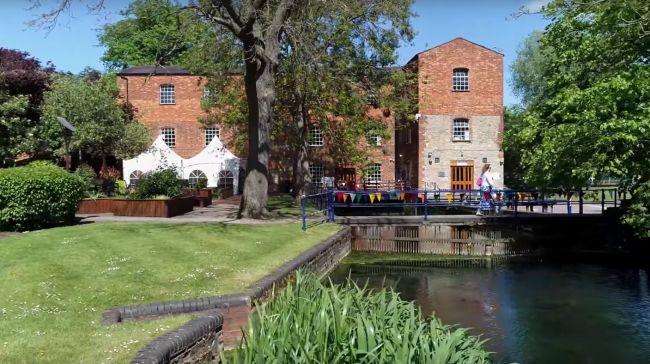Graduate Studies in TWENTIETHCENTURY




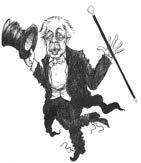
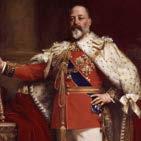
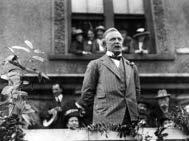
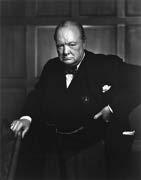

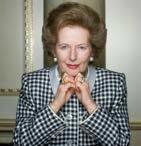
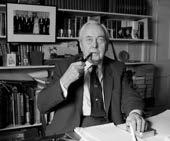

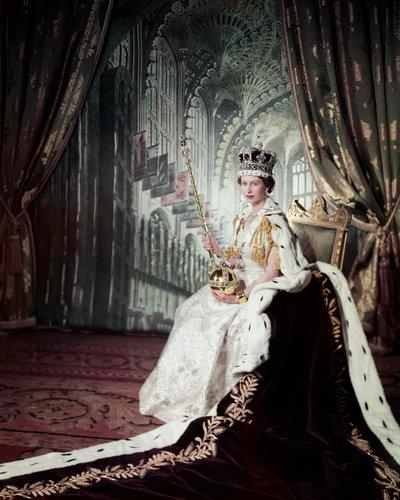

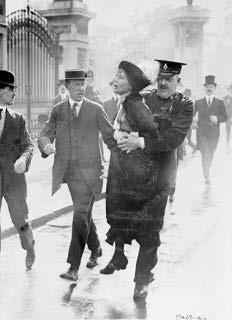
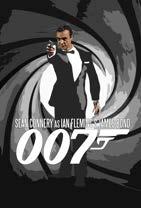
The University of Buckingham’s Master’s programme in Twentieth Century British History offers the opportunity to pursue research at Master’s level and beyond in any one of a wide range of topics from the period 1901 to 1990: whether political crises and developments or the significance of individual statesmen or women, or elements of social and cultural history and the evolution of public policy.
Individual research topics are closely focused; but the series of seminars given by distinguished historians offers a complete context of British twentieth century, as well as examining the decline of Britain as an imperial power and the historiography of the period. Recent dissertations have examined, for example, Conservative opposition to
EEC entry in the early 1970s; the extent to which Lloyd George was culpable for the failure of the Versailles Treaty; and the ideological influences on the Attlee administration from 1945 to 1951. The choice of subject area is ultimately the student’s own. The MA is awarded solely on the basis of the dissertation (there are no ‘exams’), and the relationship between you and your supervisor is therefore at the heart of the course. The maximum length for the MA dissertation recommended by the School of Humanities is 25,000 words (or approximately 75 pages at linespacing of 1.5), excluding notes and references. Student and supervisor meet regularly on a one-to-one basis to discuss, plan, and review the dissertation as it develops through the year.
Some students know from the outset the precise subject on which they intend to work. For most, however, the definition of a research proposal is usually a gradual process, with the student starting with a general area of interest, and then focusing on a more closely defined topic as a result of further reading and consultation, usually with the Course Director. Most students do not arrive at the final title of their
dissertation until towards the end of the first Term just before Christmas. The Programme Director, Professor Simon Heffer, is available to offer advice to prospective students who would like to discuss possible dissertation subjects for their research before they apply He can be reached directly by email at: simon.heffer@buckingham.ac.uk
Left: Enthusiasm 1914style: celebrations at the announcement of the outbreak of war with Germany, August 1914.
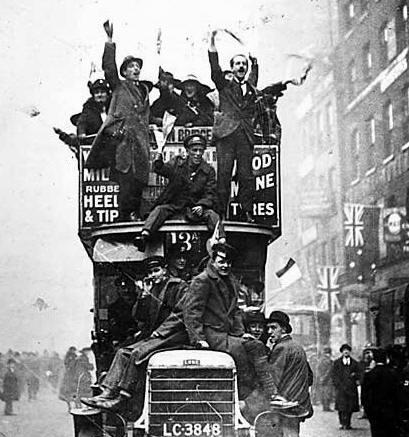
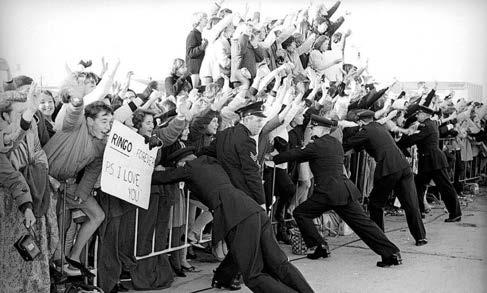
In addition to the seminar programmes and students’ one-to-one meetings with their supervisor, the programme also offers specialist classes on thesiswriting, referencing, and on how to use archival and on-line research resources.
For those who need to work with manuscripts there is also a series of classes on palaeography (the reading of early handwriting) that will enable students to acquire fluency in the reading of manuscript sources.
Private research and supervision is complemented by a rich programme of seminars which give students direct access to some of the most distinguished scholars of Britain in the twentieth century. These take place at the Caledonian Club, Belgravia, central London (see infra for further details).
drinks and then a seated dinner follows (three courses with wine) during which there is further questioning of the speaker and a general conversation about the topic in hand. (The cost of all dinners is included within the fee.)
The seminars are of course academic events, with a talk by a visiting expert; but they also have a social dimension, bringing research students and senior scholars together to discuss matters of common interest in an informal and congenial atmosphere. Each seminar starts at 6:30 pm, with an illustrated presentation by the visiting speaker and is followed by a 20-minute question-and-answer session (usually 7:30-7:50 pm). There is a break for
This coming year’s seminars explore a broad range of topics that combine to give the student a clear idea of the continuum of twentieth-century British history, from the Edwardian imperial heyday and the constitutional and industrial mayhem confronted by the Asquith administration, through the transformation of Britain to deal with total war after 1914, the slump and challenges of appeasement in the 1930s, the effect of the World War II on British power, the era of the post-war consensus, and Thatcherism and Britain’s late twentieth-century revival.
Seminars take place on Thursdays at 6:30 pm, unless otherwise stated. Please note that the details of the seminar programme are correct at the time of going to press. For possible later changes, please check the list on the programme’s webpage.
Thursday 28 September Professor Jane Ridley on Edwardian England
Thursday 12 October Professor Simon Heffer on the Great War
Thursday 26 October Dr Geraint Thomas on the Roaring Twenties
Thursday 9 November Professor David Dilks on the 1930s, the Slump and Appeasement
Wednesday 22 November Professor Dan Todman on the Second World War
Tuesday 5 December Professor Sir David Cannadine on the decline of the British Empire
Thursday 11 January Professor Sir Vernon Bogdanor on the Post-War
Decade
Wednesday 24 January Dr David Kynaston on the Eden and Macmillan Years
Wednesday 7 February Dr Dominic Sandbrook on the Wilson and Heath Years
Thursday 22 February Dr Robin Harris on the Thatcher government (via video link)
Wednesday 6 March Professor Michael Bentley on Historiography
Professor Sir Vernon Bogdanor CBE, FBA is a research professor at the Centre for British Politics and Government. He was formerly Professor of Government at Oxford University, and Senior Tutor and VicePrincipal at Brasenose College
Professor Dan Todman is the acclaimed author of a two-volume history of the Second World War, Britain’s War (Allen Lane, 2016-20) and Professor of Modern History at Queen Mary University of London.
Professor Sir David Cannadine PBA is President of the British Academy and Dodge Professor of History at Princeton University and editor of the Oxford Dictionary of National Biography.
Professor Jane Ridley is the biographer of Edward VII and Professor of History at the University of Buckingham.
Dr David Kynaston’s book Austerity Britain was named as ‘Book of the Decade’ by The Sunday Times.
Dr Dominic Sandbrook is a historian in private practice and has published prolifically on the history of Britain since the 1950s.
Dr Geraint Thomas is Director of Studies and Fellow in History at Peterhouse, University of Cambridge.
Professor David Dilks is the biographer of Neville Chamberlain and formerly Professor of International History, University of Leeds.
Dr Robin Harris Director of the Conservative Research Department from 1985–88 and a member of the Prime Minister Margaret Thatcher’s Policy Unit from 1989-90.
Professor Michael Bentley is currently Senior Research Fellow in History at St Hugh’s College, Oxford.
Seminars and Dinners
Seminars and dinners take place at the Caledonian Club (above), 9 Halkin Street, London, SW1X 7DR. View the location on Google Maps. Nearest Tube Stations: Hyde Park Corner, Victoria.
Tutorials
Tutorials usually take place at the University’s offices in Bloomsbury (51 Gower St, London, WC1E 6HJ) or can take place online if the student prefers.
Below: The Caledonian Club, Belgravia.
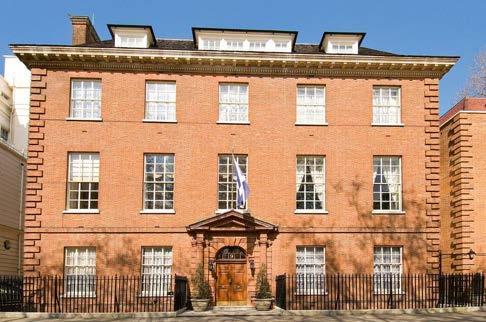
Students who wish to take their research further have the opportunity, at the end of their year of MA studies, to extend their studies to doctoral level. Where the topic and the related evidence is appropriate, students are permitted to treat their year of Master’s research as the first year of the three required for PhD study. If approved for ‘upgrading’ to doctoral study, they may submit their expanded dissertation for the PhD degree after a further two years of writing and research. Candidates who already have a Master’s degree and wish to embark on PhD study should contact Professor Heffer directly.
Right, above: Imperial apogee: George V as Emperor of India at the Delhi Durbar of 1911, accompanied by the Empressconsort and politically incorrect assistants.
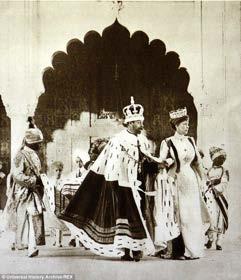
Right, below: Imperial sunset: the Union flag is lowered for the last time in Hong Kong on the cession of the colony to the People’s Republic of China, 1997.
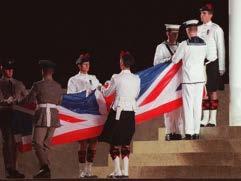
The usual requirement for admission to the MA is an honours-level bachelor’s degree from a recognized university with either a First or an Upper Second. In exceptional circumstances, the Course Director may accept mature students without an undergraduate degree if they have relevant and appropriately extensive workexperience, and can satisfy the Course Director at an interview that they are able to undertake graduate-level research.
The names of referees are required. Letters of reference do not need to be submitted at the time of application, but can follow once the application process under way. Usually, at least one of the referees should be an academic, but where this is not possible a letter of reference from a professional colleague who is familiar with the applicant’s intellectual abilities is also acceptable.
The University accepts appropriately qualified adults regardless of age . While we regularly accept candidates who are recent graduates, a significant proportion of our students opt to undertake research during or after a successful career in another context.
For questions about the application process, please email Ms Lin Robinson at the Graduate Admissions Office: lin.robinson@buckingham.ac.uk
For enquiries about the course, please email the Course Director: simon.heffer@buckingham.ac.uk
There is a straightforward application process which is dealt with online. Click here to start. If you have any queries about the process once you start, please do not hesitate to contact Ms Lin Robinson (address above), who can guide you through the process and answer any questions.
Below: What fifty years can do for male headwear: (left) Henry, Duke of Gloucester, and Edward, Prince of Wales, at Epsom, 1927; (right) two punks go shopping, 1977

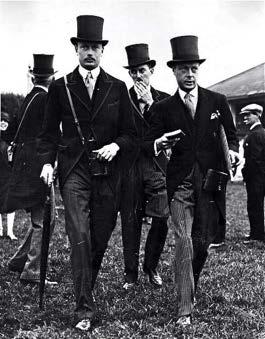
Applications from international students are welcomed. In addition to the standard application requirements set out above, they are also required to supply evidence that they have the appropriate visa (though this may be provided after the application process is in train) and evidence that they have the appropriate level of written and spoken English. The Admissions Office can provide further details.
Those who wish to attend the talks and dinners, but who do not wish to take a degree, may join the course as Associate Students (in US usage ‘Audit Students’). This status will enable the student to attend the ten guest seminars and dinners, and to meet the guest lecturers, but does not require the submission of written work. Associate Students are not registered for the MA degree.
For the fees for the coming academic year, please consult the programme’s webpage.
The University’s academic year, which begins in October, has four Terms and fees are charged on a termly basis. The sums listed above are the totals for the full year. There is no additional charge for the seminars and dinners.
(Cantab ) FRHistS is the author of more than a dozen works of history and historical biography, including his survey of British history from 1838 to 1939, of which the first three volumes are High Minds: The Victorians and the Birth of Modern Britain, The Age of
Decadence: Britain from 1880 to 1914

and Staring at God: Britain in the Great War. The fourth and final volume, Sing as We Go: Britain
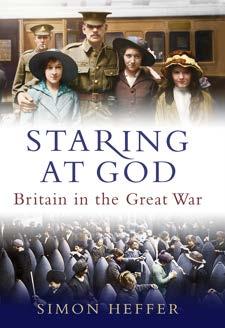
Between the Wars will be published in 2023.
His official biography of Enoch Powell, Like the Roman, was published in 1998, and he also wrote a political life of King Edward VII, Power and Place, and A Short History of Power. He is also the editor of the unexpurgated
diaries of Sir Henry ‘Chips’ Channon, being published in three volumes in 2021 and 2022. He is a former deputy editor of the Spectator and Daily Telegraph and remains a leading
Master’s in Twentieth-Century British History
political columnist and writer on culture. He is a Professorial Research Fellow in History at the Humanities Research Institute, University of Buckingham.
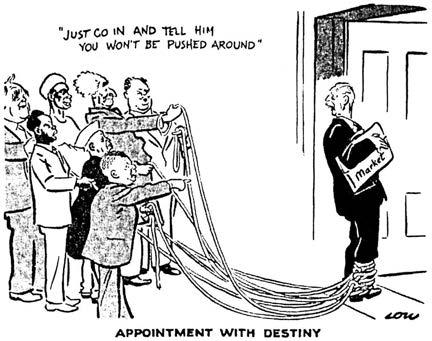
Tim Aker (MA 2021) writes:
‘Professor Heffer is an exceptional supervisor. His MA programme has brought together experts in the study of twentieth century Britain for a unique series of seminars unparalleled in postgraduate study. They have been exceptionally rewarding and are great fun. Professor Heffer has inspired me to study further and pursue a PhD at the University of Buckingham.’
recommend this course to anyone of any age who wants to understand how we are where we are.’
Donal Blaney (MA 2021) ‘The course reawakened my fascination with history, channelling skills I had learned in my professional career. No other university could have brought together such a blend of seminar topics and lecturers, hosted in such delightful surroundings. I would heartily
Yvonne Walsham (Associate Student, 2019): ‘The past is not that proverbial distant country if you attend the University of Buckingham’s seminar programme on Twentieth-Century British History. It is a period brought vividly to life by distinguished historians, including Simon Heffer himself. As an Associate Student, I thoroughly enjoyed being able to engage in discussion with fellow students and with the guest speakers over dinner in a highly convivial environment. The course was a deeply rewarding intellectual and social experience.’
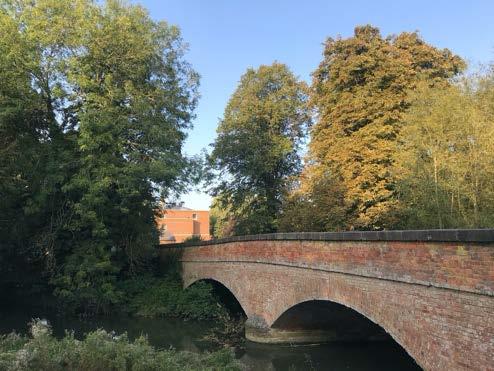
Founded in 1973 as a university college
‘on the pattern of [the] great private foundations in the USA’, Buckingham was granted full university status, with the power to confer degrees by royal charter, in 1983 the first independent university created since the 19th century. It is the only private university in the United Kingdom incorporated by royal charter.
From the start, the university was distinctive for its commitment to individual and small-group tutorial teaching, for the eminence of its academic body, and for its prizing of independence of thought and academic freedom. It currently has just over 3,000 students, almost evenly divided by undergraduates and graduate scholars.
The university is located in the centre historic market town of Buckingham on a fine campus surrounded on three sides by the Great Ouse River, with extensive lawns and gardens. Much of the fabric of the university and the surrounding town in medieval, with a notable series of buildings surviving from the 18th century. For teaching purposes, the university also maintains offices in central London, in Gower St, Bloomsbury, which are used for tutorials and occasional seminars. The environs of the town are renowned for the distinction of the historic houses
nearby. Stowe House, former seat of the Dukes of Buckingham and Chandos, lies within walking distance of the main campus and offers one of the finest 18th-century, classically-inspired landscapes in the whole of Europe. Above: the university’s Tanlaw Mill, a converted 19th-century mill which now houses the student bar and gymnasium.
Opposite page: the Vinson Building, viewed from the university bridge across the Great Ouse.
